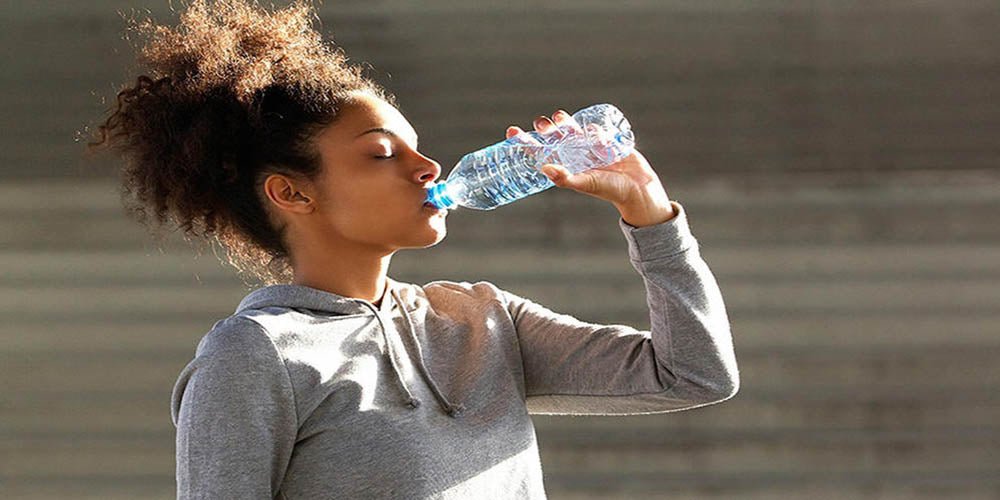
Drinking enough water every day is good for your overall health and wellbeing. The body is made up of about 60 percent water. Proper hydration can aid in multiple functions in the body. Some of those functions include keeping your body at a normal temperature and aiding in digestion support. Proper hydration is important for exercise performance as even mild dehydration may impair performance.
Most healthy adults meet their fluid needs each day by drinking when they are thirsty as well as drinking with meals throughout the day. Additionally, some foods, such as fruits, vegetables, broths, or soups, contain higher water content, which will contribute to your overall fluid intake. In order to prevent dehydration, it is important to be aware that our bodies lose water through normal bodily processes as well as through sweat. Additionally, active individuals that live in higher altitudes or warmer temperatures may notice water loss at a higher rate, compared to those that are not in these conditions.
While there is not a recommendation for how much plain water adults should be consuming each day, there are general guidelines to follow to ensure that you are getting enough fluid. Adequate Intakes (AI) for general, healthy adults are based on gender and age. Keep in mind that these estimates include water consumed through foods and beverages. About 20% of total fluid intake is consumed through food. See the table below for general recommendations.
|
Gender |
Female |
Male |
|
Total Fluid Intake Goal |
11.5 cups |
15.5 cups |
|
Fluid Intake Goal (does not include fluid content in food) |
9 cups |
12.5 cups |
If you’re curious about your fluid intakes, an easy way to assess your fluid status is to check the color of your urine. If your urine is a pale yellow color, you are most likely staying well hydrated. If you notice your urine color is a dark yellow or amber color, this may be a sign to increase your fluid intakes. Note that some medications, foods or vitamin/mineral supplements will alter the color of your urine.
Consider these tips for ways to stay hydrated:
- Carry a water bottle with you throughout the day to have it readily available when you get thirsty
- Choose unsweetened beverages more frequently than soda, juice or energy drinks
- Have a beverage such as water or milk with each meal
-
Include a variety of fruits and vegetables throughout your day.
- Fruits with a high water content: watermelon, strawberries, cantaloupe, peaches, or oranges.
- Vegetables with a high water content: cucumbers, lettuce, zucchini or celery
- Set a reminder for yourself to hydrate at certain points during the day
- Try to get most of your fluid from water or other food sources throughout the day, but keep in mind that beverages like coffee, tea, and even fruit juice will contribute to your daily fluid intake.
- If you’ve lost a lot of water through sweat, consider using a sports drink with electrolytes to help replenish the electrolytes lost as well as aid in the absorption and retention of fluids.


Share:
Creatine
Hydration and Performance